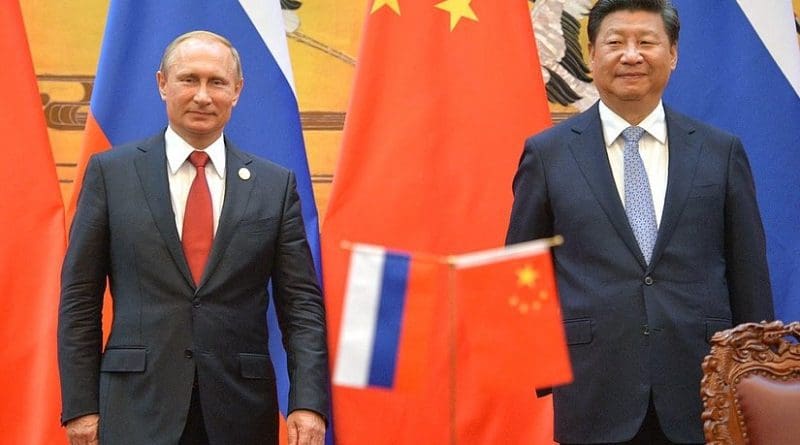Russia Lacks Transportation Infrastructure To Take Part In China-Backed Silk Road Project – OpEd
By Paul Goble
Moscow has complained about and done everything to stop efforts to create transportation links between China and Europe that bypass Russia, but Moscow experts say the biggest reason China is focusing on these alternatives is because Russia lacks the transportation infrastructure such a project requires.
Still worse, some of these specialists say, Russia’s infrastructure is in such bad shape and is likely to remain that way in the future, that absent a radical shift in policy, the country’s regions will not be able to take advantage even of “Silk Road” projects that bypass Russia by creating branch lines linking in to them.
In an article in today’s “Nezavisimaya gazeta,” journalist Andrey Serenko says bluntly that “in the subjects of the [Russian] Federation, there is no infrastructure for participating in Beijing’s logistical initiative,” the result of a lack of “political will on the part of the federal leadership” (ng.ru/regions/2016-11-24/3_6867_kartblansh.html).
This bottleneck, Serenko continues, is highlighted by the efforts of Kirsan Ilyumzhinov, the former president of Kalmykia, to revisit a proposal he made seven years ago to develop an 800-kilometer canal that would like the North Caucasus with the Chinese project and lead to development there.
In 2009, his idea was shot down not only by the onset of the economic crisis which left little money for such gigantist efforts but also by lobbyists in Moscow who preferred to build another canal that would serve only domestic Russian markets but that promised more money for those involved. It hasn’t been built either, the “Nezavisimaya gazeta” journalist notes.
Because Russia wasn’t prepared then and doesn’t appear prepared now to develop its infrastructure in ways that would make it the obvious route for a Chinese-organized Silk Road project, Beijing since 2013 had been focusing on the creation of a “single belt and single path” through Central Asia and the South Caucasus bypassing Russia entirely.
Had Moscow listened to Ilyumzhinkov seven years ago, Russia might be in a very different position; but it didn’t and it isn’t, Serenko says. Now, perhaps, the center will revisit the question but it may be a case of too little too late as Beijing is working hard to promote the bypass route.
“Several days ago,” he writes, “representatives of Azerbaijan, Georgia, Turkmenistan, Turkey and Afghanistan prepared for signing an agreement on the creation of the Lazurian corridor,” a new railroad and canal transit network “connecting Central and South Asia with the Caspian, Black Sea and Mediterranean basins.”
“Beyond doubt,” Serenko continues, “this route will interest the Chinese authorities” as well.
What does all this mean for Russia and for Russia’s region? “The more transit corridors from the western borders of China to the borders of the European Union bypassing Russian territory appear, the fewer will be the chances of Russia’s regions to extract economic value from their favorable geographic position.”
Moreover, he points out, Moscow will lose the possibility of “dividends” in foreign affairs that the Kremlin may have hoped for. Perhaps people in Moscow are now rethinking their past approach, but “the sluggishness of Moscow in this competition will involve the loss of economic prospects not only for Russia’s southern regions but for the country as a whole.”

